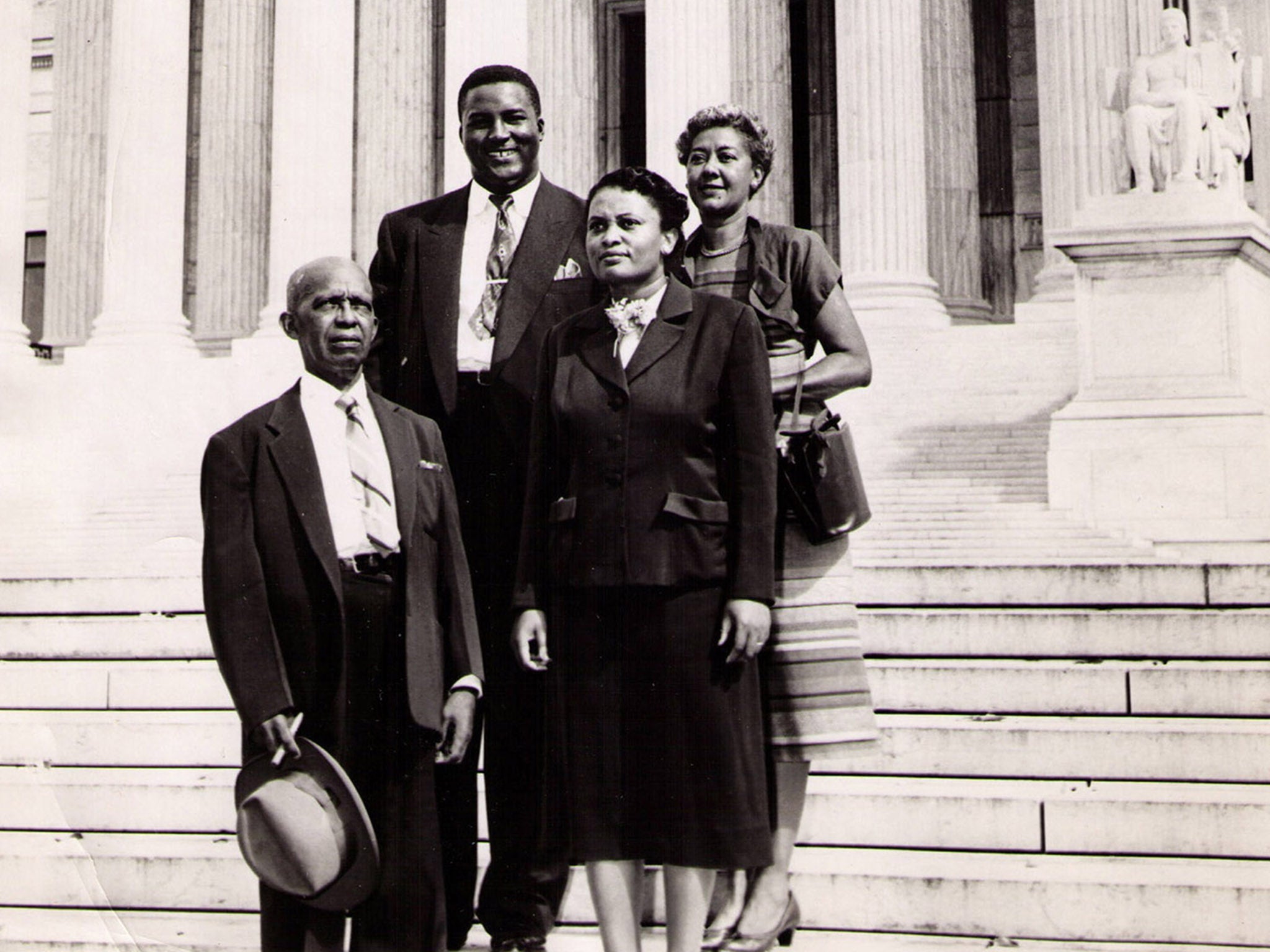Dovey Johnson Roundtree: Lawyer who blazed a trail for African-Americans and women during segregation
In an era when black lawyers would have to leave the courthouse to find a bathroom Roundtree scored victories against the racist establishment, taking up cases others would not touch

Dovey Johnson Roundtree, who has died aged 104, was a criminal defence lawyer and courtroom warrior for civil rights who played a critical early role in the desegregation of interstate bus travel in the US. She also mentored generations of black lawyers.
In a career that spanned nearly half a century, Roundtree defended predominantly poor African-American clients – as well as black churches, community groups and the occasional politician.
Her best-known case involved Raymond Crump Jr, the black labourer accused in the 1964 killing of socialite and painter Mary Pinchot Meyer, a white woman. He was acquitted despite what initially appeared to be damning witness testimony, though the Meyer case remains unsolved.
“I think in the black community there was a feeling that even if Crump was innocent, he was a dead duck,” Roundtree said. “Even if he didn’t do it, he’s guilty. I took that as a personal challenge. I was caught up in civil rights, heart, body, and soul, but I felt law was one vehicle that would bring remedy.”
When Roundtree began taking cases in the early 1950s, there were few black lawyers in Washington and even fewer black female lawyers.
Those who did practice were banned from using the cafeteria, bathrooms or the local law libraries which had whites-only policies.
African-American clients who brought personal injury or negligence suits were euphemistically “referred uptown” – directed to white lawyers who had a better chance of winning over judges. The “uptown” lawyers then paid black lawyers a fee for referring their clients.
But Roundtree and Robertson kept clients in their office, regardless of the case. “We worked for eggs and collard greens,” Roundtree once quipped, noting that she and her partner often accepted clients who couldn’t pay legal fees. For a time, they held second jobs to supplement their incomes.
In 1952, soon after they began their practice, the duo unsuccessfully represented Sarah Keys, a Women’s Army Corp private who had been ordered by a bus driver to give up her seat to a white marine.
When she refused the driver moved all of the passengers but Keys to a new bus. When Keys asked why she was not allowed on board, she was arrested by two police officers, jailed for 13 hours and fined $25 for disorderly conduct.
After the case was kicked out of the US District Court in Washington on jurisdictional grounds, Roundtree and Robertson filed a complaint with the now-defunct Interstate Commerce Commission which had a reputation as “the Supreme Court of the Confederacy” for consistently ruling in favour of segregation.
In 1955, the commission finally agreed that “assignment of seats in interstate buses, so designed as to imply the inferiority of a traveller solely because of race or colour, [was] unjust discrimination”.
This was achieved after the logic of the landmark 1954 Brown v Board of Education ruling to end racial discrimination in schools was applied to close a loophole exploited by public transport operators.
The ICC gave states and bus companies six weeks to desegregate buses, as well as bus station waiting rooms and restrooms. (Station restaurants, the commission said, were not essentially connected to travel and could remain segregated.)
But under a new segregationist chairman who had dissented in the Keys case, the ICC refused to enforce its own desegregation ruling: It took six years, not six weeks.
Dovey Mae Johnson was born on 17 April 1914, in Charlotte, North Carolina, where she recalled once hiding under the kitchen table while the Klan thundered past in the night on horseback. Her mother was a seamstress. Her father, a printer who died in the influenza pandemic of 1919.
After his death, the family lived with Roundtree’s maternal grandparents in a church parsonage.
Soon after her 1938 graduation from historically black Spelman College in Atlanta, she moved to Washington to work as a research assistant for the National Council of Negro Women.
After her service in the Women’s Army Auxiliary Corps, Roundtree enrolled at Howard University’s law school. A brief marriage around that time to William Roundtree ended in divorce.
She graduated in 1950 and one year later started her law practice with Robertson. He died in 1961.
Roundtree was involved in few court cases that dealt explicitly with civil rights. Instead, she employed her ministerial courtroom style – which mixed a strategic deference to judges with scholarly references to biblical scripture and Shakespeare – primarily on criminal cases, taking clients whom other lawyers ignored.
Roundtree co-founded the law firm of Roundtree, Knox, Hunter & Parker in 1970. Three decades later the American Bar Association honoured her for advancing female lawyers in the profession.
Dovey Johnson Roundtree, born 17 April 1914, died 21 May 2018
© Washington Post
Subscribe to Independent Premium to bookmark this article
Want to bookmark your favourite articles and stories to read or reference later? Start your Independent Premium subscription today.

Join our commenting forum
Join thought-provoking conversations, follow other Independent readers and see their replies